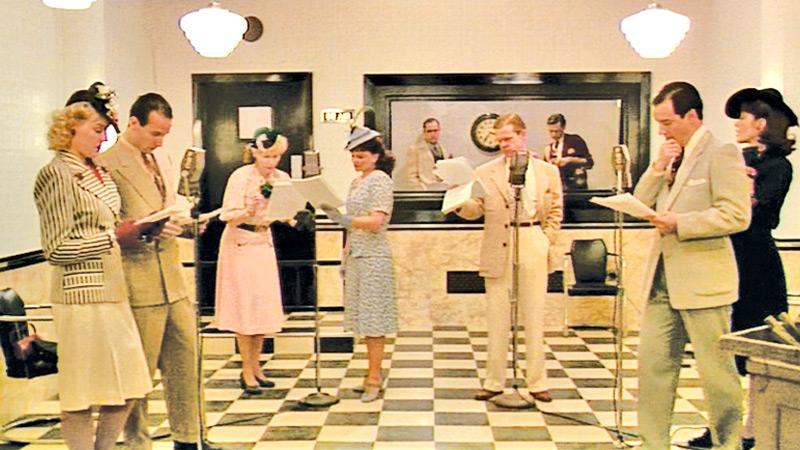
The dawn of the 21st century heralded the next stage of ‘mediatised society’ which was the internet-based entertainment and news culture which has gained intensity in its expansion through the bridging of mobile phone technology and computer software. Mediatisation of society, where mass media plays the function of ‘decision maker’ over people’s lives and give them direction can be traced back to the invention of the printing press, and the gradual spread of a newspaper culture, where people craved for news as the written word.
And then came the aadio. And afterwards television, preceding the digitalised society of today where it is principally internet media dominated. In this regard I’d like to discuss how Hollywood filmmaker Woody Allen delivers in his film ‘Radio Days’ a picture into how the visionless, wireless world of radio occupied a central role in the lives of people before they were swept away by TV entertainment. The film has Woody Allen’s voice as the narrator named Joe.
Influence on childhood
Joe explains how the radio influenced his childhood in the days before Television. The story shows how young Joe lived in New York city in the late 1930s. The story line blends Joe’s experiences with his memories and anecdotes, which includes his childhood recollections about the urban legends of radio stars, and is built in the form of shifting plot points and vignettes. Each member of Joe’s family at one point during the film finds in radio shows an escape from reality. Their choice of ‘entertainment’ could vary from the gossip of celebrities, sports legends of the day, game shows, music, and the majority of the stories take place in the glamour of Manhattan. For Joe, the action adventure radio shows inspire him as he daydreams about buying a secret decoder ring, an attractive substitute teacher, movie stars who are larger than life and may in fact be disappointments in real life, and the most significant event that occurred in history at the time, World War II.
Others’ stories
Several other parallel stories are narrated as well, such as by an aspiring radio star named Sally White, Joe’s Aunt Bea (reflecting her relentless search for love), and during the middle of the film, on the radio the tragic story is told about a little girl named Polly Phelps, who falls into a well near Stroudsburg, Pennsylvania. It becomes a big national story and as the family listens to it. These intertwining stories which have the ‘voice’ as the principal narrative element show a defining facet of ‘radio’. And thereby has a symbolism in that functional element to connect with the title and theme of the film.
When one thinks of radio media one cannot leave out the importance of songs and music and Allen has touched in this aspect by featuring songs from the 1930s and ’40s to blend with parts of the story line. What will be the next stage of mediatised society in this fast-growing ear of internet media? Like Allen looked back to the days of vision less media driven by the power of sound to create ‘Radio Days’, will someone some day in the future do a film that looks back at how TV influenced and commanded our lives?

